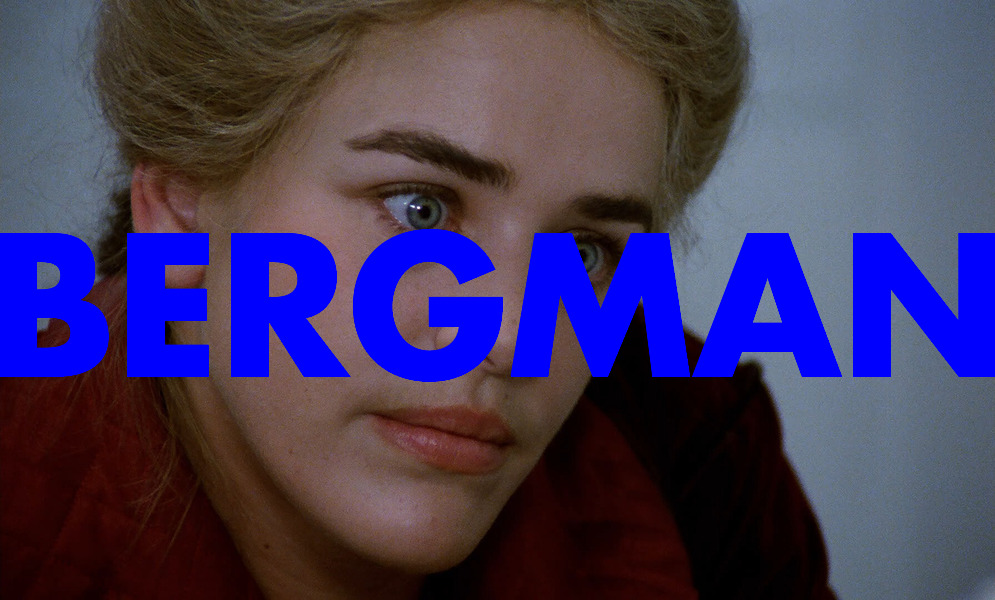OK, strap in! It’s Bergman time!
I watched this movie five years ago, and it’s not new on the 2022 list — it was #16 then, and now it’s fallen down to #53. But Criterion has released a nice blu ray collection… which includes the TV series version! So I’m taking this opportunity to watch that.
Does that make sense? No? No.
But it’s more than five hours long (two hours more than the film version), and I don’t think I’ve ever seen this version before, so… what evs.
(Actually, I’m not quite sure — it was shown on TV when it was new, and I’m pretty sure I saw it then. But I’m not sure whether they showed the film or TV version.)
Since the TV version is like *maths* *calculations* *slide rule* 40% longer than the film version (5:21 vs 3:08), I was wondering what Bergman had dropped — I mean, whole sub plots, or just dropped some scenes and shortened others. So far (I mean, I’m just half an hour in), it’s the latter, I think. That is, there’s definitely scenes here that aren’t in the film version, but no additional characters or plot points.
That is, it moves a lot slower than the film version. Each scene seems longer — which suits the material. More time is dedicated to the peripheral characters.
Like these two — were they in the film version? Hm…
It’s like a Mythical Swedish Christmas Performance thing.
Well, the first 90 minutes flew by. The first episode covers the Christmas party and what happens during the following night. There were a couple of scenes that felt slightly superfluous, so I can see why Bergman cut them for the film version, but it mostly just seems like a more sensitive version of that sequence than was in the movie. That is, Bergman didn’t really cut anything really essential.
And now we’re onto the next day, and I’m guessing we’re now going to be seeing a whole lot more scenes that weren’t in the film version.
He’s so evil!!!
They have sailor’s suits for mourning!? The Swedes are so advanced.
This section was perhaps better in the film? It was more compressed, and it’s a section that (perhaps bizarrely enough) doesn’t feel that important dramatically: The father dies, which takes us from the part of the movie where the children are happy, to the part where they’re unhappy, but it feels like it’s there because it has to be — not because Bergman is that invested in it.
OK, a part of why I enjoy this movie so much is just because I love these interiors. My ideal apartment is one that is 90% hallways.
SO EVEIEL
The film is called Fanny & Alexander, but Fanny barely has any lines…
I didn’t quite remember this bit being this melodramatic… I mean, waking up a kid in the middle of the night — with lightning flashing — that more than a bit over the top.
I’m not criticising — I’m just saying.
So evil!!!
Oh, this scene with the ghosts was cut, I think?
This couple must be the most pathetic in movie history. But funny.
He’s so evil!
And in this longer version, his evility (that’s a word) is rather over the top.
The three hour version of this is great drama, and the five hour version is great melodrama? In either film, it’s impossible not to cry when Jacobi stages the Kid Saving Heist, but it’s got a different resonance?
I’m not sure I would recommend the longer version over the shorter unreservedly. The first and last sections — the ones that have the least plot and the most magic — are definitely more better in the longer version: More of a good thing is an even better thing. The three middle sections (which are the shorter sections) don’t really benefit much from having more time. Those sections have a lot of plot that should move snappily, and in the longer version, the plots lack that snap.
So — is the added magic in the first and last sections worth the lack of snappiness in the middle sections? Uhm…
I dunno. It’s a great movie anyway.
Fanny & Alexander. Ingmar Bergman. 1982. ⚅
This blog post is part of the Officially The Best 2022 series.

